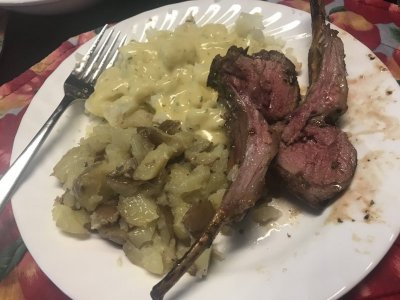senior chef
Senior Member
There is nothing worse than trying to eat a dried out, tasteless chicken. However, with a little bit of planning and foresight, this is easy to avoid.
1.) For every 1 gallon of water, add 1 cup of kosher salt. (Other herbs/spices are optional)
2.) bring water and salt to a rolling boil.
3.) remove from heat and let cool to room temp.
4.) chill salted brine.
5.) add either whole chicken OR chicken pieces and put back in refrigerator.
6.) Brine for 24-48 hours IN REFRIGERATOR.
7. ) remove chicken and throw away brine.
8.) cook chicken as per your recipe. If baking, the chicken skin will be nicely browned, and moist. If frying, the chicken meat will not shrink and thus it will NOT squeeze out the chicken juices.
So, why is it so critical to add chicken ONLY after the brine is chilled ? BACTERIA ! if you add the chicken to a warm brine, bad bacteria will get a running start and you will get sick.
1.) For every 1 gallon of water, add 1 cup of kosher salt. (Other herbs/spices are optional)
2.) bring water and salt to a rolling boil.
3.) remove from heat and let cool to room temp.
4.) chill salted brine.
5.) add either whole chicken OR chicken pieces and put back in refrigerator.
6.) Brine for 24-48 hours IN REFRIGERATOR.
7. ) remove chicken and throw away brine.
8.) cook chicken as per your recipe. If baking, the chicken skin will be nicely browned, and moist. If frying, the chicken meat will not shrink and thus it will NOT squeeze out the chicken juices.
So, why is it so critical to add chicken ONLY after the brine is chilled ? BACTERIA ! if you add the chicken to a warm brine, bad bacteria will get a running start and you will get sick.


